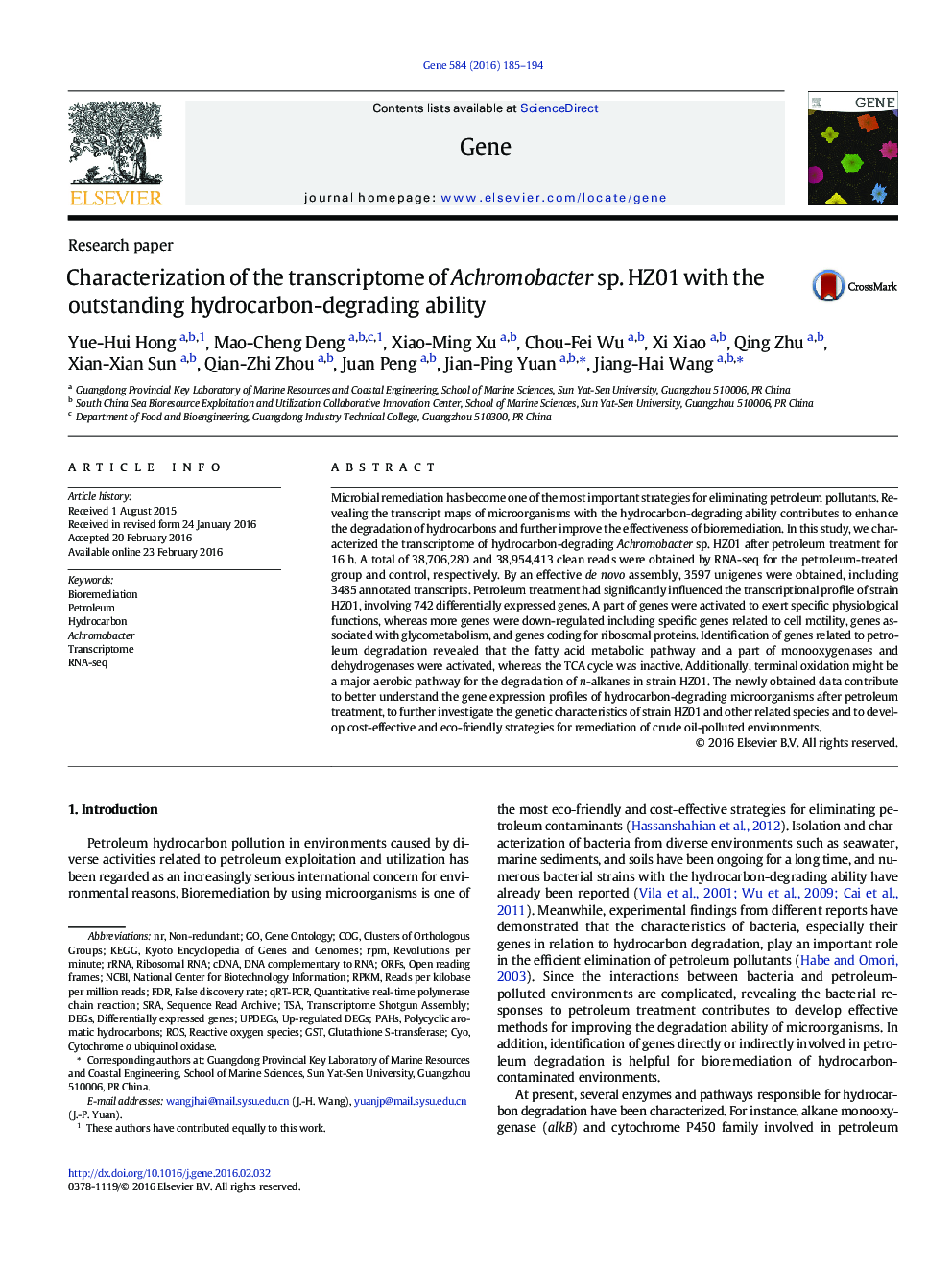| کد مقاله | کد نشریه | سال انتشار | مقاله انگلیسی | نسخه تمام متن |
|---|---|---|---|---|
| 2814984 | 1159842 | 2016 | 10 صفحه PDF | دانلود رایگان |

• A de novo transcriptome of hydrocarbon-degrading Achromobacter sp. HZ01 was reported.
• The transcriptional profile of strain HZ01 after petroleum treatment was revealed.
• A part of functional genes and pathways were identified and analyzed.
• Terminal oxidation might play a major role in n-alkanes degradation in strain HZ01.
• The data contributed to understand the transcription of oil-degrading bacteria.
Microbial remediation has become one of the most important strategies for eliminating petroleum pollutants. Revealing the transcript maps of microorganisms with the hydrocarbon-degrading ability contributes to enhance the degradation of hydrocarbons and further improve the effectiveness of bioremediation. In this study, we characterized the transcriptome of hydrocarbon-degrading Achromobacter sp. HZ01 after petroleum treatment for 16 h. A total of 38,706,280 and 38,954,413 clean reads were obtained by RNA-seq for the petroleum-treated group and control, respectively. By an effective de novo assembly, 3597 unigenes were obtained, including 3485 annotated transcripts. Petroleum treatment had significantly influenced the transcriptional profile of strain HZ01, involving 742 differentially expressed genes. A part of genes were activated to exert specific physiological functions, whereas more genes were down-regulated including specific genes related to cell motility, genes associated with glycometabolism, and genes coding for ribosomal proteins. Identification of genes related to petroleum degradation revealed that the fatty acid metabolic pathway and a part of monooxygenases and dehydrogenases were activated, whereas the TCA cycle was inactive. Additionally, terminal oxidation might be a major aerobic pathway for the degradation of n-alkanes in strain HZ01. The newly obtained data contribute to better understand the gene expression profiles of hydrocarbon-degrading microorganisms after petroleum treatment, to further investigate the genetic characteristics of strain HZ01 and other related species and to develop cost-effective and eco-friendly strategies for remediation of crude oil-polluted environments.
Figure optionsDownload high-quality image (122 K)Download as PowerPoint slide
Journal: Gene - Volume 584, Issue 2, 15 June 2016, Pages 185–194